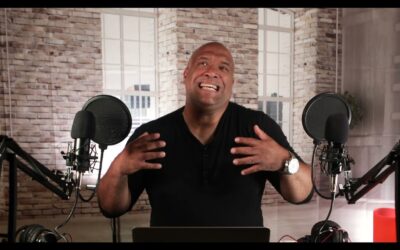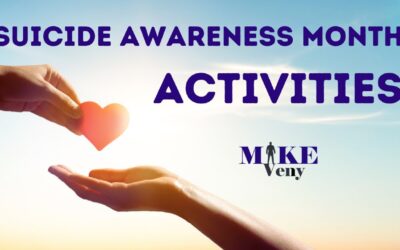Mental health challenges affect one in five adults yearly. Sadly, just 45% of people feel they can talk openly about what they’re going through.
Your story might be exactly what someone needs to hear right now. People who have dealt with mental health challenges or seen their effects up close can help others find hope. Sharing these experiences changes lives, and that’s why becoming a mental health speaker is more significant than ever.
The numbers tell an interesting story – requests for mental health speakers have jumped 300% since 2020. Companies running wellness programs and schools now look for real people who can talk about mental health topics.
This guide will show you how to turn your personal story into meaningful talks that connect with others. You’ll discover ways to shape your message, build speaking abilities, and land your first opportunities to speak.
Want to help change how people think and talk about mental health? Let’s start a journey to becoming a mental health speaker.
Understanding the Mental Health Speaking Landscape
Mental health speaking has grown into a vibrant field that offers many opportunities to people who want to share their stories and knowledge. Organizations now give priority to mental wellness, and aspiring speakers should learn about this digital world.
Types of Mental Health Speakers
The mental health speaking field covers several unique categories that serve different purposes:
- Lived Experience Speakers: People who share their personal recovery experience and give hope through their stories
- Clinical Expert Speakers: Mental health professionals who blend academic knowledge with hands-on experience
- Advocacy Speakers: Champions who push for policy change and work to reduce mental health stigma
- Workplace Wellness Speakers: Specialists who tackle mental health issues in work environments
Current Demand and Opportunities
The speaking industry has changed by a lot, especially for mental health topics. Right now, many venues want mental health speakers:
Corporate Sector
Companies set aside big budgets for mental wellness programs. Speakers can participate in employee wellness sessions, leadership training, and crisis management workshops.
Educational Institutions
Schools and universities book speakers regularly for:
- Student wellness programs
- Faculty development
- Parent education sessions
Healthcare Organizations
Medical facilities and mental health organizations need speakers for:
- Staff training
- Patient education
- Community outreach programs
Speaker bureaus help connect mental health experts with these opportunities. Organizations offer both in-person and virtual platforms, which helps spread mental health messages to more people.
Money earned varies by a lot. New speakers often start with free presentations, but experienced speakers can earn between $2,500 to $10,000 for each talk. These speaking opportunities often lead to more income through workshops, consulting, and program development.
Successful speakers create multiple program offerings to make the most of these opportunities. This helps them serve different audiences and keep a steady booking schedule. Many organizations look for speakers who can deliver powerful presentations and provide lasting value through follow-up programs.
Mental health awareness has opened doors in new places like corporate retreats, wellness festivals, and online platforms. Speakers now reach bigger audiences while building meaningful connections with their listeners.
Developing Your Core Message
Personal experiences become powerful presentations when you craft your core message carefully. A well-laid-out approach will give your story the power to appeal to audiences.
Crafting Your Personal Story
Your unique experience builds the foundation of your speaking career. Pick out the pivotal moments that shaped your mental health experience. Write down these experiences in order of time and focus on the challenges you faced and lessons you learned. Your authenticity matters most – people connect with real stories rather than polished performances.
Identifying Key Takeaways
Once you have your story ready, pick three to five main insights for your audience. Think over:
- Practical coping strategies that worked for you
- Warning signs others should watch for
- Resources that helped you most during your experience
Your personal experiences should directly link to each takeaway. This makes them believable and memorable.
Creating a Meaningful Presentation
Your presentation should encourage engagement to maximize retention. Start with a title that captures your core message. A strong opening will grab attention right away.
Your presentation should follow this framework:
- Brief background sets the context
- Your personal story with selected details
- Applicable takeaways
- Clear next steps for the audience
Note that a strong call-to-action (CTA) should match your message and personality. This ranges from professional help to support groups or specific wellness practices.
Balance emotional moments with practical insights throughout your presentation. Without doubt, personal stories create connections, but practical guidance offers immediate value. A 60-40 split between stories and practical content works best.
Practice sessions recorded help you polish your delivery. You’ll spot areas that need work and keep your message clear and meaningful. Prepare answers to common questions, especially about sensitive topics or tough moments in your experience.
Building Essential Speaking Skills
Public speaking skills are the life-blood of becoming an effective mental health speaker. You can develop the confidence to share your message with influence through dedicated practice and proper techniques.
Simple Public Speaking Techniques
Strong delivery begins with proper vocal projection and pacing. Your original focus should be on steady eye contact with different sections of your audience. Purposeful gestures emphasize key points without appearing rehearsed. Your tone and pitch variations keep the audience involved throughout your presentation.
Your body language plays a vital role in conveying authenticity. A shoulder-width stance with an open posture helps you move purposefully on stage. Notwithstanding that, pacing or fidgeting can distract from your message.
Joining Toastmasters for Practice
Toastmasters are a great way to get speaking skills in a supportive environment. Regular participation helps you:
- Become skilled at impromptu speaking
- Receive constructive feedback
- Build confidence gradually
- Network with experienced speakers
Handling Sensitive Topics
Mental health presentations often cover delicate subjects that just need careful handling. Clear content warnings should come before potentially triggering topics. A balanced approach works best between sharing personal experiences and providing professional insights.
These strategies help address challenging subjects:
- Set appropriate boundaries for personal disclosure
- Prepare responses for emotional audience reactions
- Keep resource lists readily available
- Create safe spaces for audience questions
Speaking about mental health requires both technical skill and emotional intelligence. You should develop techniques to manage your emotions while presenting. Recognition of audience discomfort signs helps adjust your presentation style.
Self-care matters before and after speaking engagements. Of course, sharing personal mental health experiences drains you emotionally. Your established routines help maintain mental wellness while supporting others through your speaking career.
If you are serious and want to dive right in, I highly recommend Leisa Reid’s Speaker’s Training Academy. Lisa is the CEO of the International Speaker Network and can help take your speaking career to the next level or start one if you wish to become a speaker.
Starting Your Speaking Career
A career as a mental health speaker needs strategic planning and persistence. You’ll find your place in this meaningful field with proven strategies that work.
Finding First Speaking Opportunities
Local organizations offer great starting points for aspiring speakers. Mental health support groups, community centers, and libraries look for speakers regularly. These original opportunities might not pay, but they give you valuable experience and testimonials.
Here are effective strategies to secure speaking engagements:
- Create a professional speaker profile on platforms like eSpeakers
- Develop multiple program offerings to serve diverse audience needs
- Build an engaging online presence through social media and professional networks
When I began my career as a mental health speaker, one of the ways I found opportunities was through SpeakerMatch. It’s a comprehensive online job board and application system designed specifically for speakers. You’ll receive direct requests from meeting planners, access open calls for speakers, and search their online database for additional opportunities.
Working with Mental Health Organizations
Mental health organizations give excellent platforms to emerging speakers. These mutually beneficial alliances provide:
- Access to established audiences
- Credibility in the mental health community
- Networking opportunities with industry professionals
Strong relationships with organizations need consistent communication and reliability. Organizations value speakers who give engaging presentations and maintain professional standards. Regular involvement builds lasting connections that create ongoing speaking opportunities.
Your growing reputation should lead to multiple revenue streams. Speaking fees can combine with workshops, consulting services, and program development. This mix creates sustainable income and broadens your influence in the mental health community.
Evidence-based decisions help track your progress effectively. Your audience’s feedback, engagement levels, and booking patterns provide valuable insights. Successful speakers usually start with pro-bono presentations before earning fees between $2,500 to $10,000 per engagement.
Conclusion
Mental health speaking provides a platform to turn personal experiences into meaningful change. A combination of thorough preparation, enhanced skills, and networking can help you build a fulfilling career while directing others through their mental health challenges.
Your personal story and speaking expertise create deep connections with audiences of all types. Speaking opportunities are growing rapidly as organizations focus on mental wellness programs. They need authentic voices to address these significant topics.
Success in this field demands commitment to both personal and professional growth. Begin with small steps, collect feedback, and expand your influence steadily. Many speakers started with community talks before moving to corporate speaking engagements.
Want to elevate your mental health advocacy? I can help develop your speaking career. As your consultant, I’ll direct your path from sharing personal experiences to professional speaking.
Your message should remain authentic while you focus on your mental well-being. Your story might be exactly what someone needs to hear today.
FAQs
Q1. What qualifications do I need to become a mental health speaker?
While formal qualifications aren’t always necessary, having personal experience with mental health challenges or professional expertise in the field is crucial. Developing strong public speaking skills, crafting a compelling personal story, and staying informed about current mental health topics are essential for success.
Q2. How can I find my first speaking opportunities?
Start by offering to speak for free at local community centers, libraries, or support groups. Join organizations like Toastmasters to practice and network. Create a professional online presence and consider listing yourself on speaker directories. As you gain experience, you can approach mental health organizations and educational institutions for paid opportunities.
Q3. What types of mental health speakers are in demand?
There’s a growing demand for various types of mental health speakers, including those with lived experience, clinical experts, advocacy speakers, and workplace wellness specialists. Organizations are particularly interested in speakers who can share personal stories while providing practical insights and actionable advice.
Q4. How much can I expect to earn as a mental health speaker?
Earnings vary widely based on experience and reputation. While new speakers often start with unpaid or low-paid engagements, established speakers can earn between $2,500 to $10,000 per event. As you build your career, you can also explore additional revenue streams like workshops, consulting, and program development.
Q5. How do I handle sensitive topics when speaking about mental health?
When addressing sensitive mental health topics, it’s important to provide content warnings before discussing potentially triggering subjects. Maintain a balance between sharing personal experiences and offering professional insights. Prepare responses for emotional audience reactions, keep resource lists handy, and create safe spaces for audience questions. Always prioritize your own mental well-being and practice self-care before and after speaking engagements.






